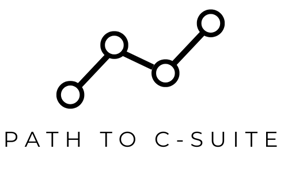Landing Your First COO Job
1/25/20254 min read


Essential Skills for a Chief Operating Officer
To secure a Chief Operating Officer (COO) position, an individual must cultivate a variety of essential skills that align with the responsibilities of the role. One fundamental skill required is strategic thinking. A COO must adeptly analyze market trends, foresee operational challenges, and devise actionable plans for sustainable growth. For instance, when a major competitor enters the market, a skilled COO will not only assess the impact but also develop a strategic response that can include adjusting pricing, enhancing product offerings, or entering new markets.
Operational management is another key competency. This skill involves overseeing daily business operations, ensuring that various departments work harmoniously toward common objectives. A COO should implement effective processes and systems to enhance operational efficiency. For example, in a manufacturing setting, a COO might streamline production workflows to reduce downtime and increase output without compromising quality.
Financial acumen is equally critical for a COO. Understanding financial statements, budget management, and cost control can significantly impact a company's profitability and sustainability. A proficient COO will analyze financial data to make informed decisions about resource allocation. For instance, by reviewing operational expenses, a COO might identify unnecessary costs and drive initiatives to enhance profitability.
Leadership capabilities cannot be overlooked either. A COO must inspire and manage teams, fostering an organizational culture that prioritizes collaboration and innovation. Effective leadership is demonstrated when a COO motivates employees through challenging projects, ensuring alignment with the company's vision and mission.
Lastly, communication skills are vital for success in the COO role. A COO frequently interacts with stakeholders at all levels, from employees to board members. Clear communication facilitates better teamwork and enhances the implementation of strategic initiatives. By honing these essential skills, prospective COOs can significantly enhance their effectiveness in driving the operational success of their organization.
Personal Attributes that Define a Successful COO
The role of a Chief Operating Officer (COO) demands a unique blend of personal attributes that contribute to effective governance within an organization. Among these attributes, adaptation to changing environments is paramount. A successful COO should demonstrate flexibility in their approach, recognizing that market dynamics and organizational challenges are constantly evolving. Adaptability allows them to pivot strategies in response to unforeseen circumstances, ensuring operational continuity and strategic alignment.
Resilience is another critical trait for a COO. The path to achieving corporate objectives is fraught with obstacles, and the ability to bounce back from setbacks distinguishes an effective leader. Resilient COOs not only endure challenges but also inspire their teams to adopt a similar mindset, fostering a culture of perseverance and innovation within the organization. This quality encourages collaboration, as team members feel more empowered to take calculated risks and learn from failures.
Emotional intelligence is integral to a COO's effectiveness in managing both tasks and people. This attribute encompasses self-awareness, empathy, and the ability to forge strong interpersonal relationships. A COO exhibiting high emotional intelligence is proficient in understanding team dynamics, thus facilitating more open communication and collaboration. COOs who can read the emotions of their team members and respond appropriately often create an environment that values employee well-being and productivity.
Moreover, decision-making skills are crucial in defining a COO's leadership style. A COO must be adept at analyzing data, weighing risks, and arriving at informed conclusions. Effective decision-making can guide teams toward achieving organizational goals while maintaining operational efficiency. Personal preferences for data-driven approaches vary among successful COOs; however, testimonies from these leaders often highlight the significance of a well-rounded perspective that melds intuition with empirical evidence. Ultimately, these personal attributes not only enhance the COO's leadership effectiveness but also significantly impact the overall organizational culture.
Relevant Experience for Aspiring COOs
Securing a chief operating officer (COO) position often demands a diverse and multifaceted background. Aspiring COOs should focus on accumulating relevant experience through various roles that hone their leadership skills and operational understanding. A common pathway to the COO role includes progressing through managerial positions across different functions such as finance, marketing, human resources, and operations. This breadth of experience not only enhances one’s understanding of how each department operates but also fosters the ability to lead cross-departmental initiatives effectively.
Industries such as technology, manufacturing, and retail typically provide a rich landscape for aspiring COOs to gain valuable insights into operational efficiency, supply chain management, and customer relations. Experience within high-growth companies or startups can also be particularly advantageous, as these environments often require adaptability and innovative problem-solving skills. Additionally, roles in project management can develop critical competencies in resource allocation, timeline management, and stakeholder communication, all of which are integral to the COO’s responsibilities.
A strong network is equally vital for gaining relevant experience and advancing toward a COO role. Networking allows individuals to connect with mentors who can provide guidance and share experiences that are instrumental in navigating one’s career path. Participation in industry conferences and professional organizations can open doors to mentorship opportunities, fostering relationships that may lead to job openings or strategic advice essential for career growth. Furthermore, surrounding oneself with experienced professionals can offer invaluable insights into the nuances of executive-level decision-making and operational strategy.
In summary, aspiring COOs should prioritize diverse managerial experiences, engage with mentors, and leverage networking opportunities to build a strong foundation that prepares them for the complexities of a COO position.
The Need for Continual Learning in the Evolving Landscape
The role of Chief Operating Officer (COO) is increasingly dynamic, requiring professionals to be proactive in their approach to career development and lifelong learning. As industries evolve and business landscapes shift, COOs must stay abreast of emerging trends and technological advancements that fundamentally alter operational strategies. This ongoing education is not merely beneficial; it becomes essential for those seeking to lead organizations effectively in a rapidly changing environment.
Continual learning can manifest through various avenues, including professional development courses, certifications, and workshops that target specific skill sets. These educational opportunities enable COOs to refine existing capabilities and acquire new ones that are indispensable for navigating the complexities of contemporary business operations. Organizational agility, data analytics, supply chain management, and digital transformation are areas where continuous education provides a competitive edge to COOs.
Additionally, peer learning networks play a critical role in fostering a culture of knowledge sharing among executives. Engaging with fellow professionals allows COOs to exchange insights on best practices and innovative strategies, thereby enhancing their collective expertise. Such collaborations can lead to an enriched understanding of the challenges faced by organizations, equipping COOs with the tools necessary to address them effectively.
As technological advancements accelerate, the need for reskilling becomes apparent. Automation, artificial intelligence, and data-driven decision-making are trends that require COOs to adapt swiftly to maintain relevance in their roles. Embracing a mindset of lifelong learning not only enhances individual competence but also positions organizations for sustainable success. The most successful COOs are thus those who view learning as an ongoing journey, continually seeking out knowledge and experiences that will honor their commitment to adaptability and excellence in leadership.
Contact & About
Newsletter
© 2025. All rights reserved.
Legal
About Us


